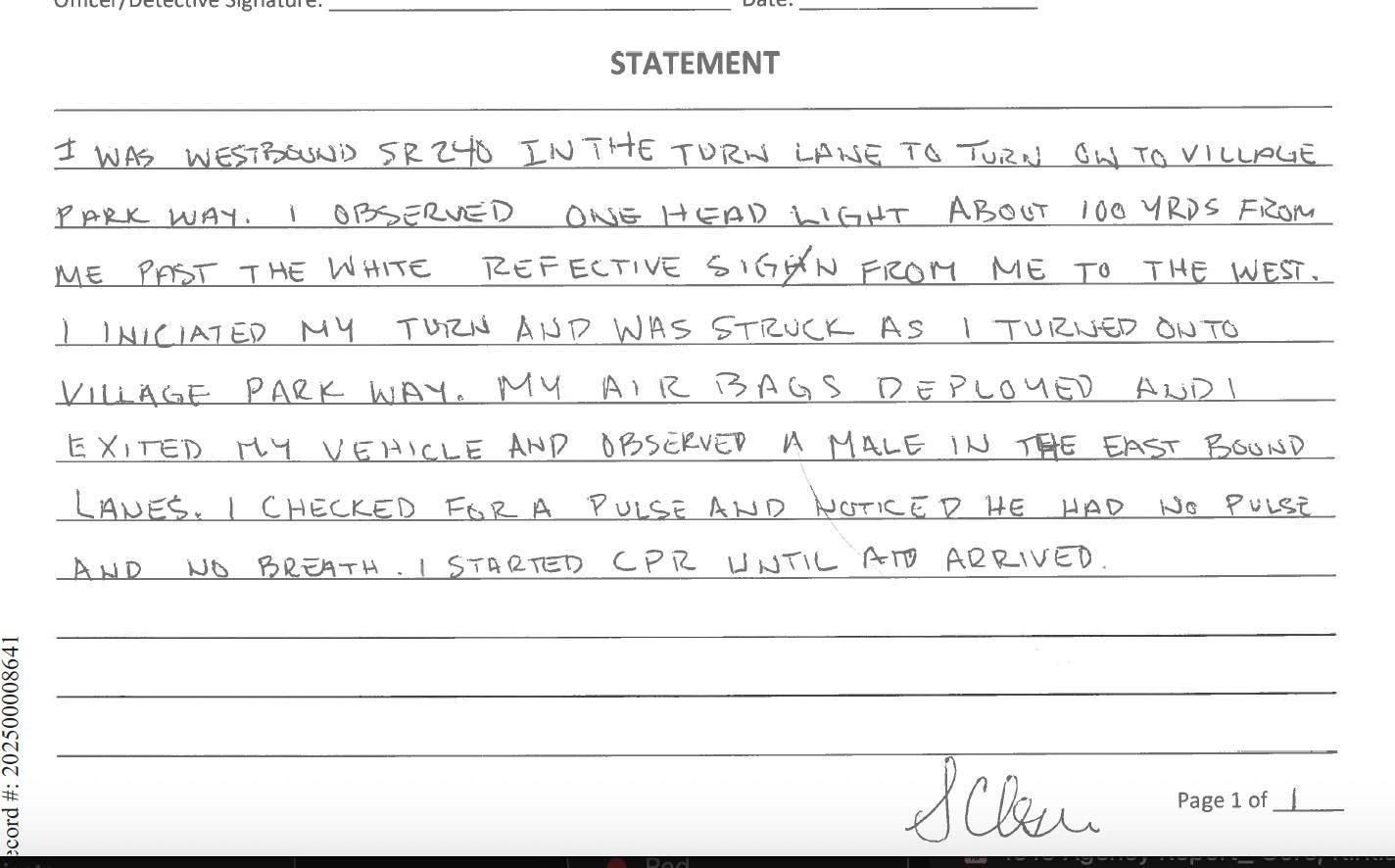WSP trooper still not charged for killing immigrant despite ample evidence
Spokane County prosecutor says they are waiting for the end of an ongoing investigation

The scheduled arraignment of a Washington State Patrol trooper arrested for vehicular manslaughter was canceled earlier this week. No charges have been filed against Sarah Clasen, as prosecutors await the blood draw results, which could take up to a year to complete, given the massive backlog at the state toxicology laboratory.
However, breathalyzer and blood test results aren’t typically necessary to charge a person for DUI or vehicular manslaughter if other evidence exists. Though she refused field sobriety tests and the breathalyzer, a detective certified in drug recognition evaluated Clasen on the scene and found clear evidence of intoxication, including “glossy” eyes, slurred speech and a strong “odor of intoxicants” coming from Clasen.
.
Richland police detective Steve Heid responded to the scene where Clasen had just run over and killed a 20-year-old Venezuelan immigrant Jhoser Sanchez. Clasen’s statements were full of contradictions. She explained that she had seen the headlight of Sanchez’s motorcycle in the oncoming lane about 100 feet away. She used a trick involving a traffic sign further down the road to gauge whether turning was safe. Officers measured it at 637 feet.
She claimed that “the motorcyclist was definitely going faster than the posted speed limit,” without explaining how she knew this as a fact. Later she contradicted herself when she told Heid that she didn’t know how fast the motorcycle was going and that it had already passed the sign she used to tell if it was safe to turn. She also told Heid a few times that the motorcycle “came out of nowhere” despite saying earlier that she had seen it clearly.
When it came time for Clasen to give a written statement, she attempted to write on the hood of her vehicle. Heid had to stop Clasen from touching her car after she simply seemed to forget that it was part of an active death investigation. Another fact that Heid found suspicious and that would eventually lead to Clasen’s arrest.
Clasen’s statement was surprisingly short and lacked the details she had given earlier. She took nearly 20 minutes to write six sentences..
She contradicted herself when she said the crash occurred right when she began to turn, and then later claimed that she had almost completed the full turn. Heid had already determined that Clasen had struck the motorcycle at the beginning of the turn based on where the motorcycle was underneath the SUV.
Clasen told Heid that she did not stop in the turn lane and had slowed down only to 20mph before making the turn. She used police jargon, “rolling slow down,” that Heid noted had nothing to do with the crash or driving technique she was using. Heid also stated that Clasen was rambling and not completing her sentences throughout her explanation.
Heid asked again to perform field sobriety tests and Clasen refused stating that “she knows how it goes.” Heid arrested Clasen for vehicular manslaughter and told her that he determined that impairment was a factor in the crash.
Before leaving the scene, Clasen told Heid she would submit to the BAC tests, but Heid opted to seek a warrant. The judge approved the warrant at 11:55 p.m., four hours after Clasen was the collision, and medical staff drew blood at 1:16 a.m. The five-hour delay could create more space for Clasen’s defense attorney to cast reasonable doubt on the validity of the BAC result in court.
Though the collision took place in Benton County, Spokane County has taken over prosecution because Clasen operated out of an office in Benton County. Spokane County Prosecutor Larry Haskell has previously shown leniency in cases involving police killings, declining to file charges against officers who shot and killed a man carrying only a baseball.
The Spokane County prosecutor’s office released a statement, saying “A charging decision will be made when the investigation is complete… There will be no interviews or public discussion beyond this statement.”




Really appreciate this question. We’re an all-volunteer collective that incurs expenses in the course of this work. Your contribution helps us cover fees for public record requests, document retrieval from court systems, and subscriptions to tools like Canva, Dropbox, and BeenVerified that we use daily to report these stories.
We provide this reporting as a public good and we’re really grateful to readers such as yourself who help us maintain this service.
The "immigrant" reference is a good reporting of what happened...certain if he was alive, he could be facing deportation...🥲🥲